Sea, Sand, & Sun
By Bonnie Noble
What is it about water? Especially sea water? How can it be inspiring and intimidating at the same time? How does it create both a sense of peace and awe? What is it about the sea that calls to us? It was our great good fortune, on our latest travel adventure to the Greek Islands, to have time for pondering these questions while surrounded by the sea.
Oh So Blue
The crystal clear waters of the Aegean Sea range from the deepest blue to sparkling turquoise. It’s hard to believe how blue the water is. It’s impossible to stop staring at it.
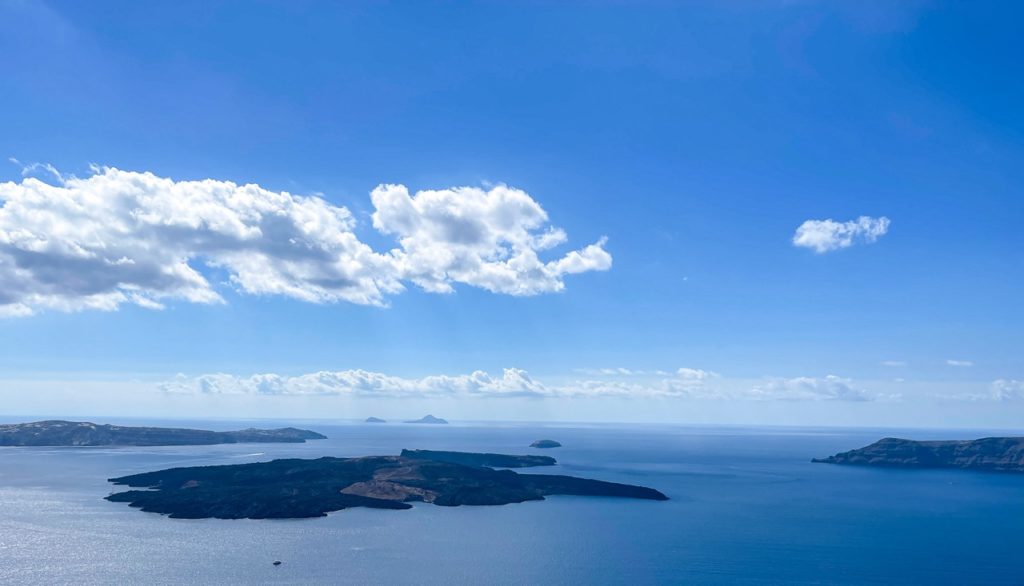
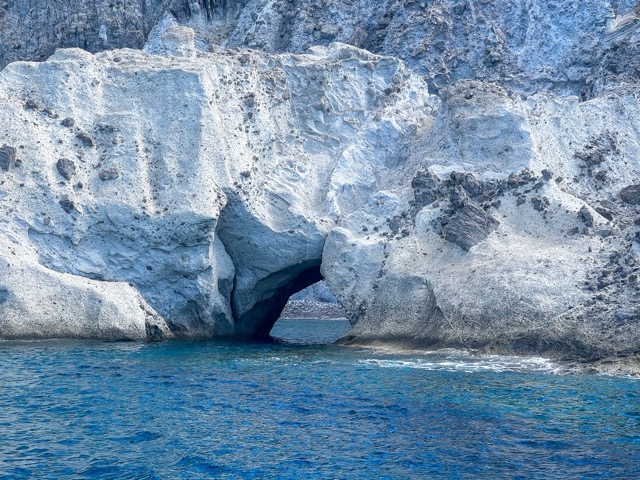
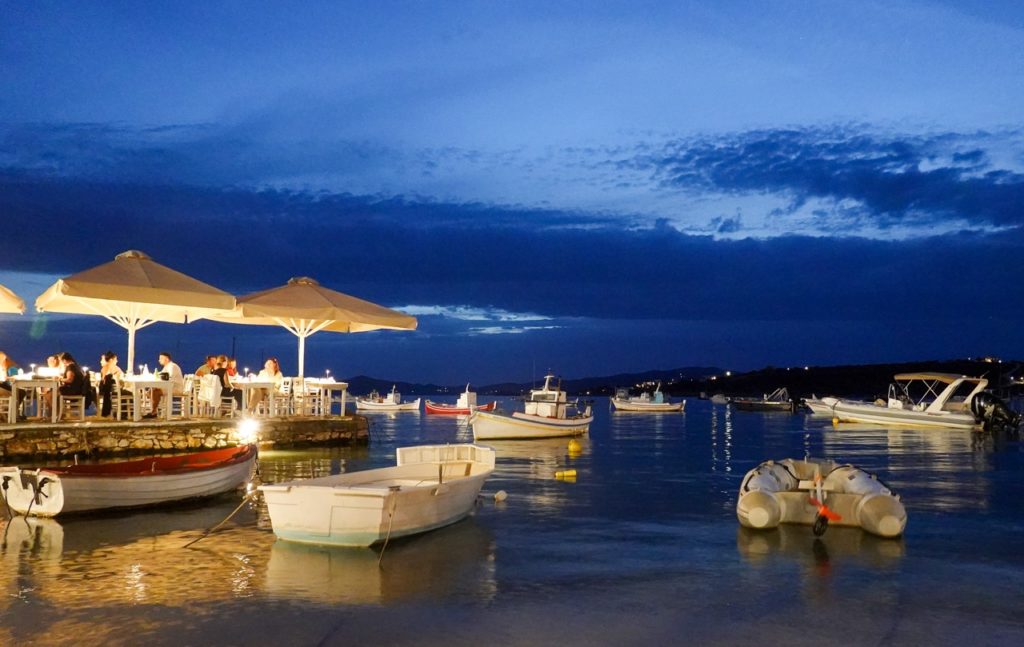
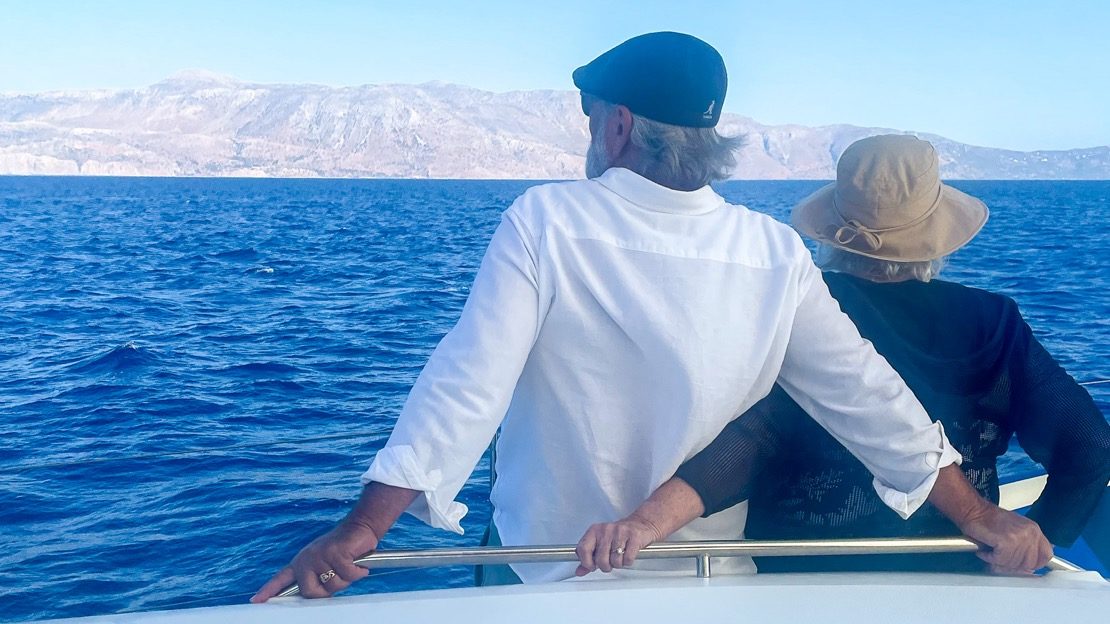
It turns out, there are mental health benefits to staring at the ocean. The color blue seems to be associated with calm and peace and we often find our selves in a relaxed, meditative state. Being near the sea is a remedy for stress and anxiety and we feel more connected to nature.
…our brains are hardwired to react positively to water and being near it can calm and connect us, increase innovation and insight, an even heal what’s broken. Wallace J. Nichols, Marine Biologist
Wading & Jumping
Whether it’s wading into the water from a beautiful sandy beach or jumping in from the side of a boat, there’s no better feeling than being in sea water. We were fortunate to have almost daily opportunities to wade, dive, and swim during our time in Crete, Santorini, and Paros.
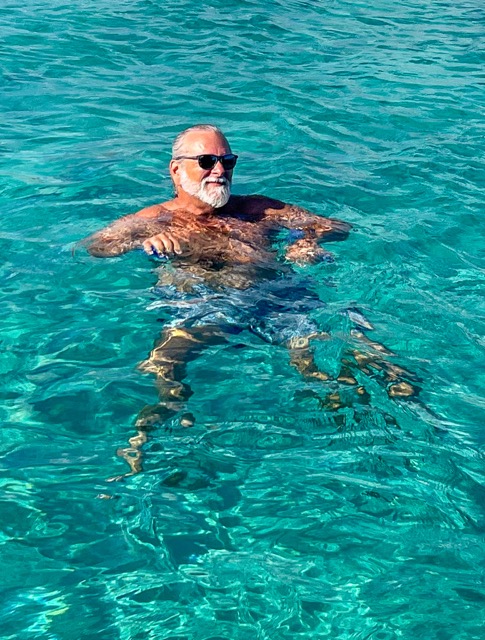
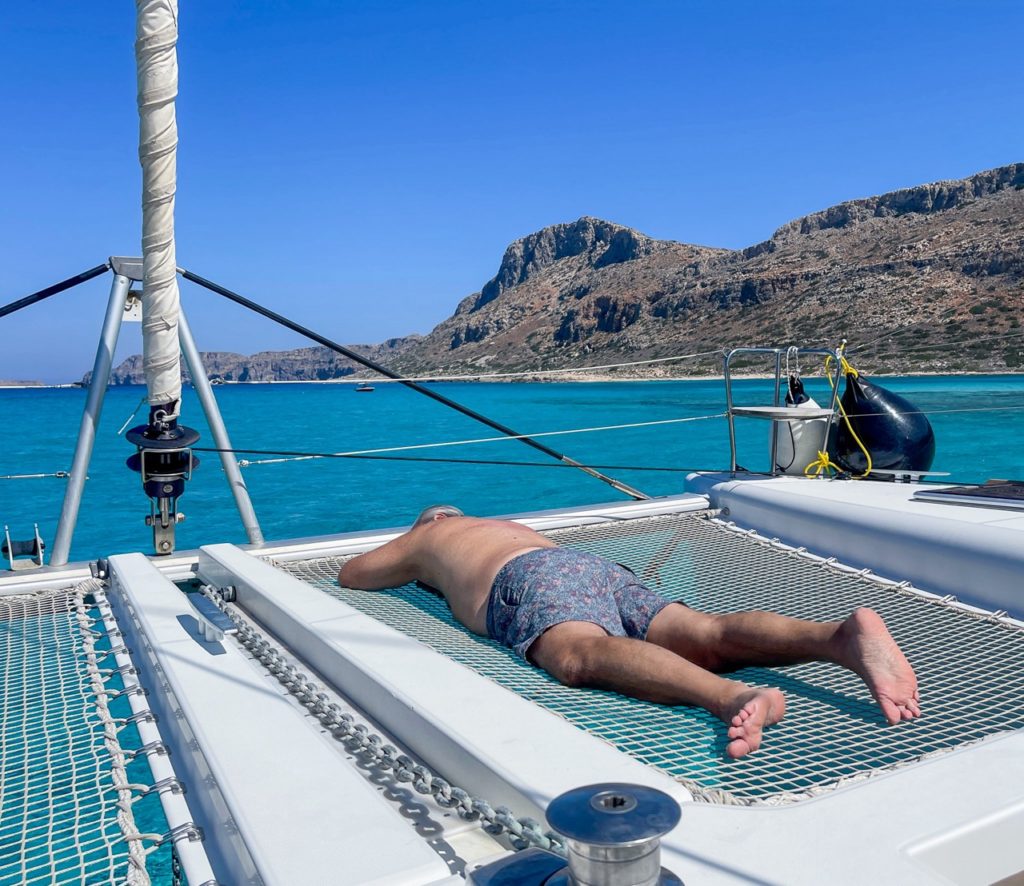
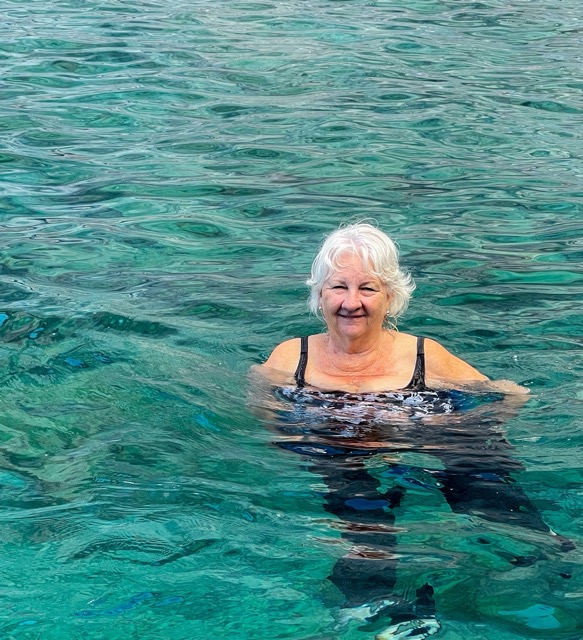
Numerous health benefits are attributed to salt water (and the Mediterranean is salty!). Breathing in salty water clears your throat and airways, heals cuts and scrapes, and soothes muscles and joint pains. It’s wonderful to feel supported, buoyed, and gently rocked by the sea.
A Favorite Beach?
Catering to tourists, most hotels and resorts in Greece include beautiful pools and Jacuzzi hot tubs. But the Greeks can’t understand why many of us prefer this artificial water that we can find in every other part of the planet, even our own backyards. For us, the natural beauty, the movement and sound of the surf, the warm sand make beaches a clear winner in the pool vs. beach debate.

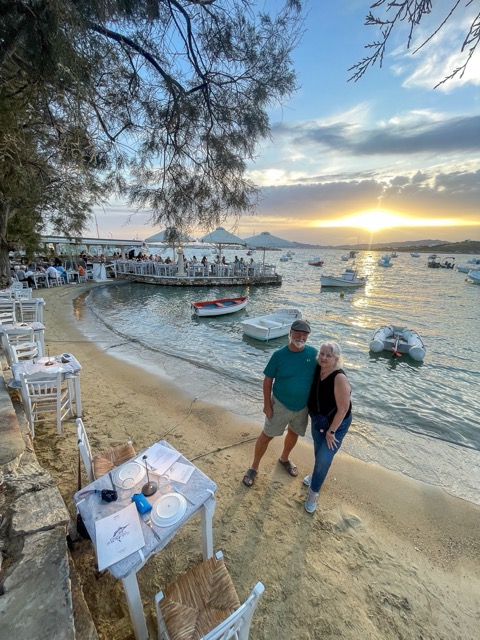
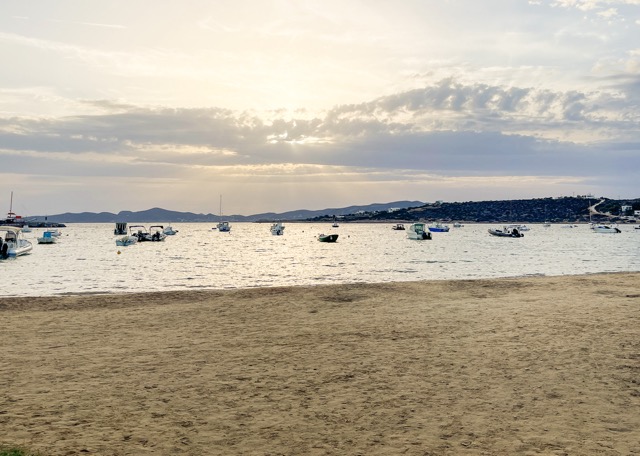
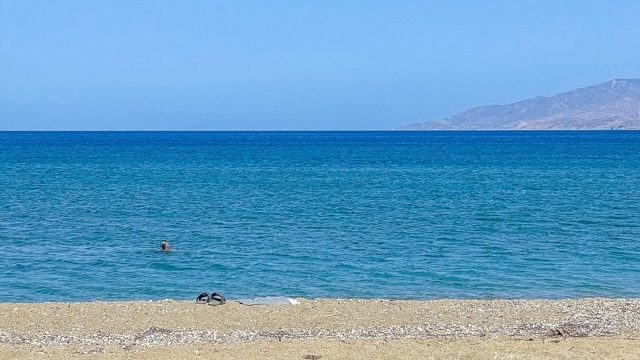
Last May, anticipating our return to Greece to explore a few islands, we asked every Greek we met, “What is your favorite island?” The response was always the same – the name of a favorite beach. As we drove around the island of Paros one day, we drove past many beaches. After a while, Ed stopped the car, we changed to our suits (behind the car) and went for a swim. There were just a few locals nearby doing the same. No umbrellas lined up on the sand, no one to bring a cold drink, no frills…just sand and sea. The sea was calling.
Greeks love the sea. It is the very essence of their being, their culture, and their legacy. They treasure the feel of the cool, salty water on their skin, let their feet touch the soft wet sand, and lie on the beach basking in the joy of the sun drying their body. Is it possible we could be at least part Greek?
Magic
And then, there’s the sunrises and sunsets with vibrant colors reflecting off of the water creating a magical atmosphere. I especially love sunsets!
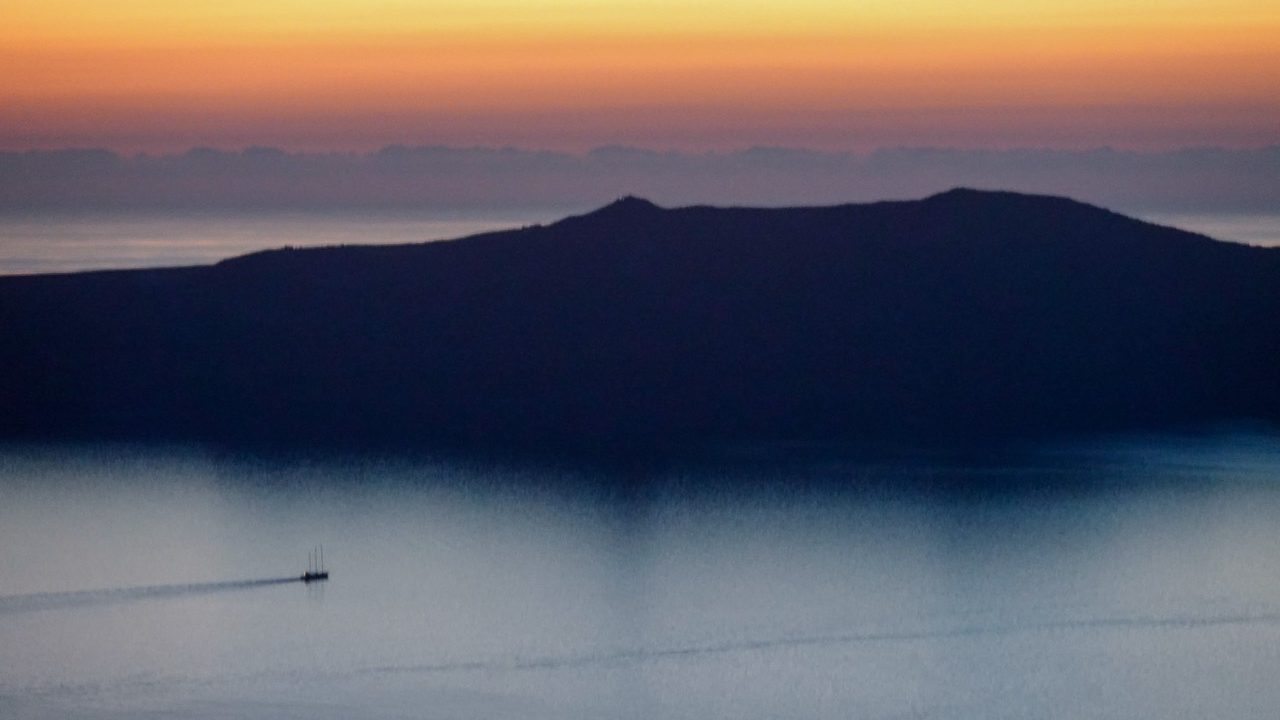
It’s All Here
With an amazing combination of natural beauty and historical significance, the Aegean is an incredible place. Besides the beaches and the ultra blue water, there are stunning coastlines, ancient ruins, charming villages, vibrant cities – it’s all here to see and experience.
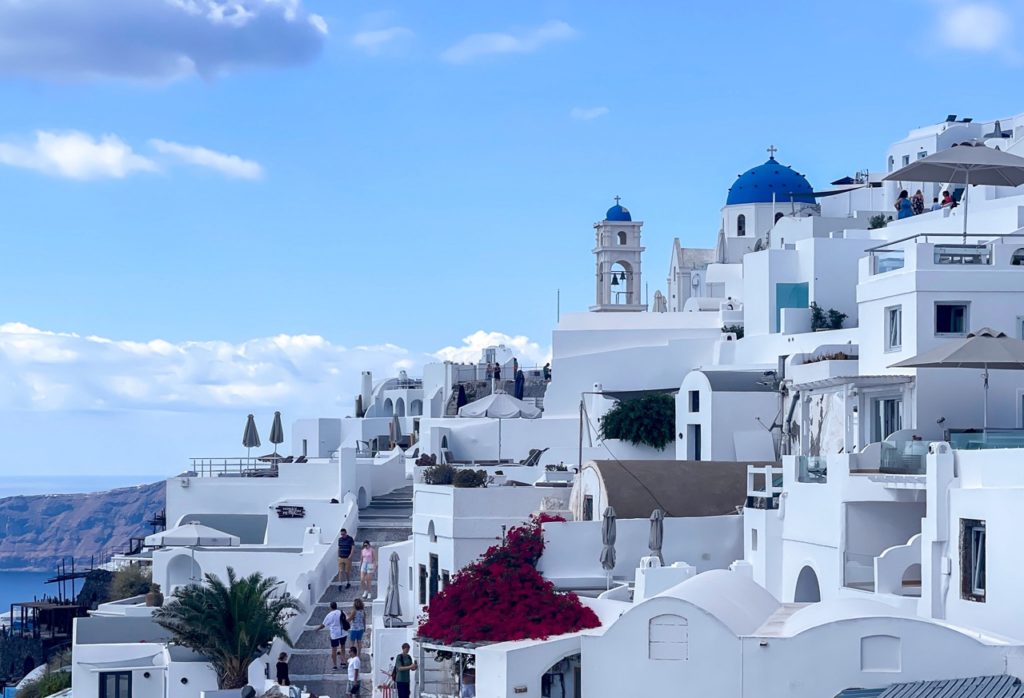
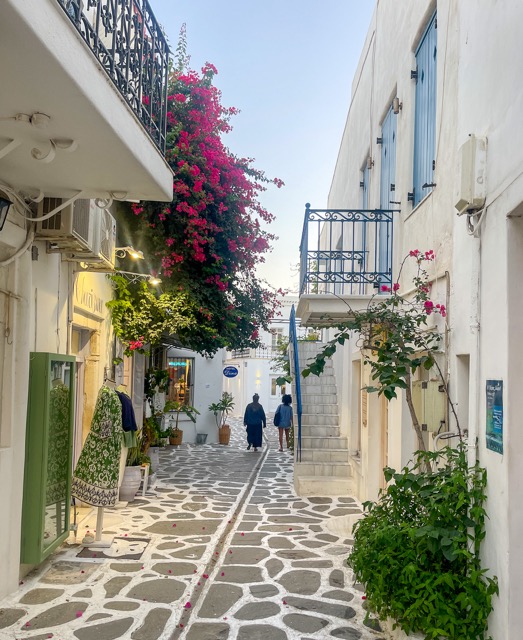
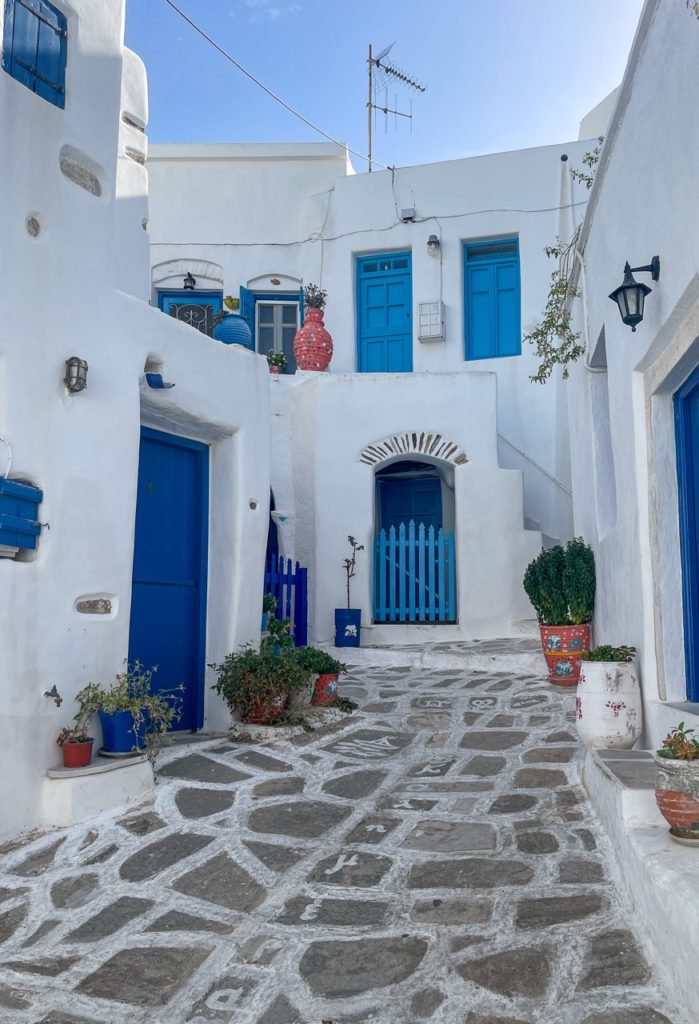
The sea is “a trigger telling your brain you’re in the right place.” Wallace J. Nichols
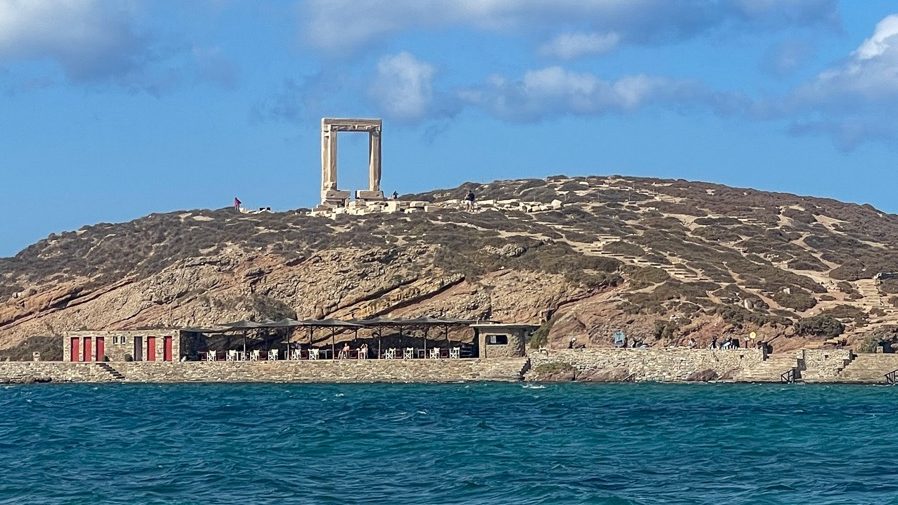
The Ancient Stones
By Ed Noble
As an American, with our limited education in the history and cultures of the world, tags like “the cradle of western civilization” just roll right over us without any real comprehension. Bonnie and I have spent a total of four weeks wandering about Greece this year, and it is slowly dawning on us just how profound that label is when describing the glories of Greek history and culture.
The Great Minoan Civilization
In Greece, you cannot escape the past. Thousands of archaeological sites testify to 5,000 years of human achievement in the development and organization of societies and cultures. The more you see and learn, the more astonishing they become. Consider, for example, our most recent foray into antiquity – a site in Crete known as the Knossos Palace.
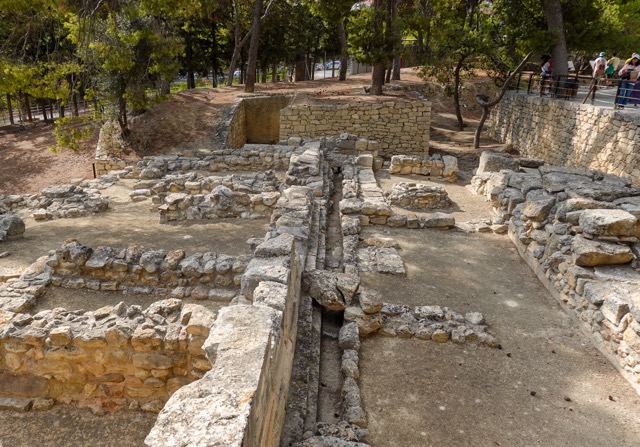
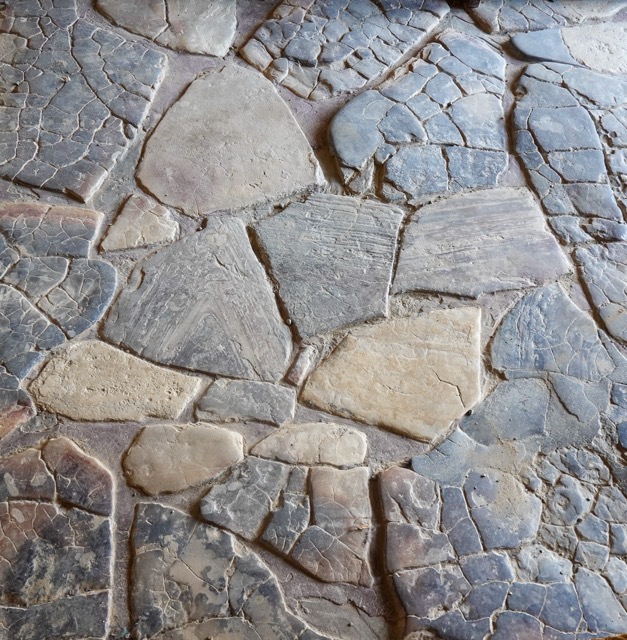
This archaeological site was unknown just 150 years ago. It was an olive grove. Lying silently beneath that grove of trees lay a complex stone masterpiece of engineering and construction comprising some 1,300 rooms that had once been the center of a magnificent seafaring civilization buried and forgotten for several millenia. While its discovery and excavation is an interesting story, what is breathtaking for me is to contemplate the sophistication and intelligence of the society that had to have existed to make it possible.
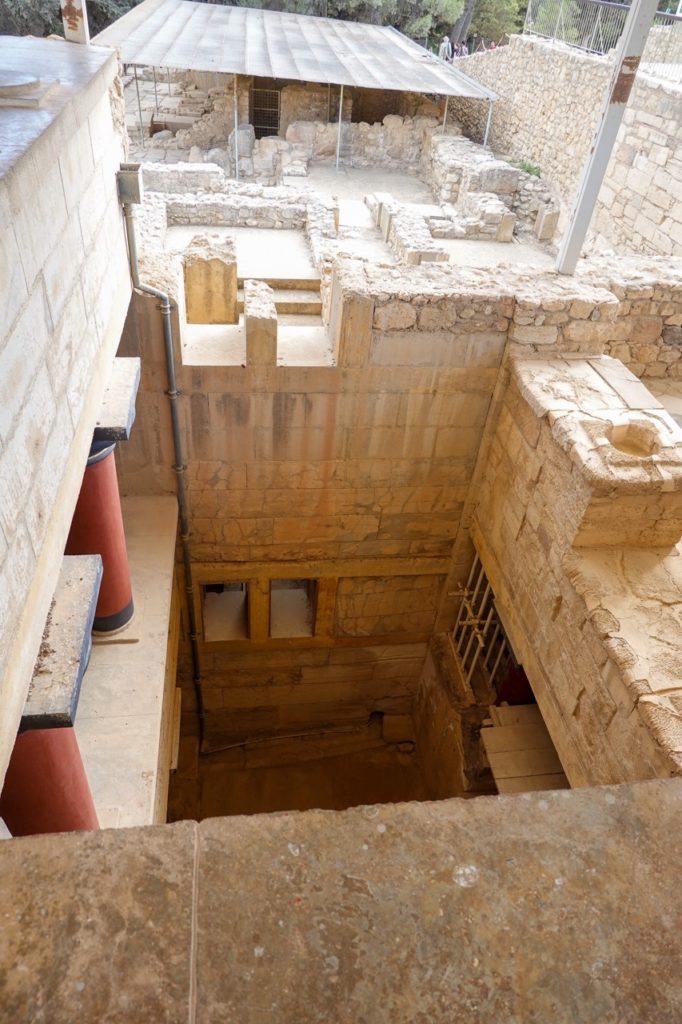
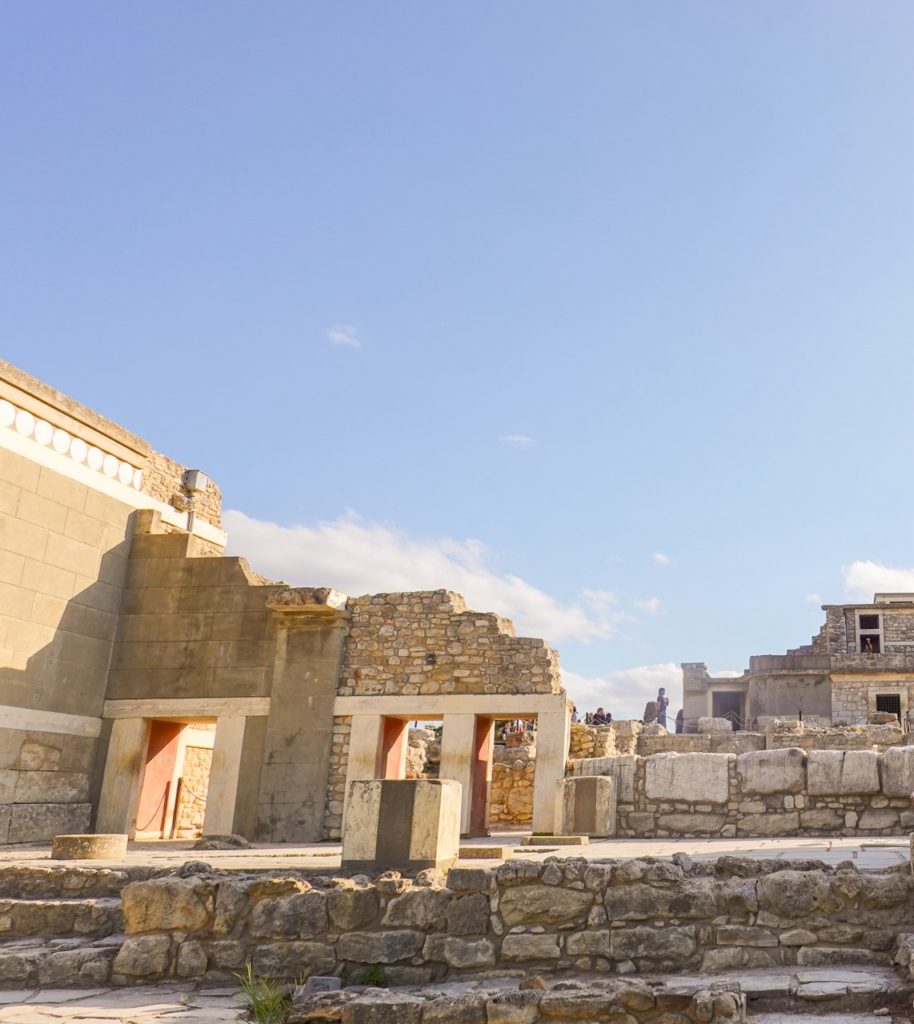
Indoor Plumbing
We have named these people the Minoans – a name drawn from mythology referencing a King Minos, he of the Minotaur and the Labyrinth. In fact, this association is pure speculation and there is much more evidence that Knossos was, in fact, an amazing civilization based on regional trade that existed for a thousand years, peacefully, without wars – developing art, music, dance, and a sophistication that is astonishing to contemplate when compared to what we consider to be modern society. For example, recent excavations of the area around the palace, where the community at large made their homes, has revealed that literally every home had indoor plumbing: fresh running water, waste water piping, and a separate toilet room. Every home! American homes were not guaranteed to include these features as recently as in my grandparents lifetime!
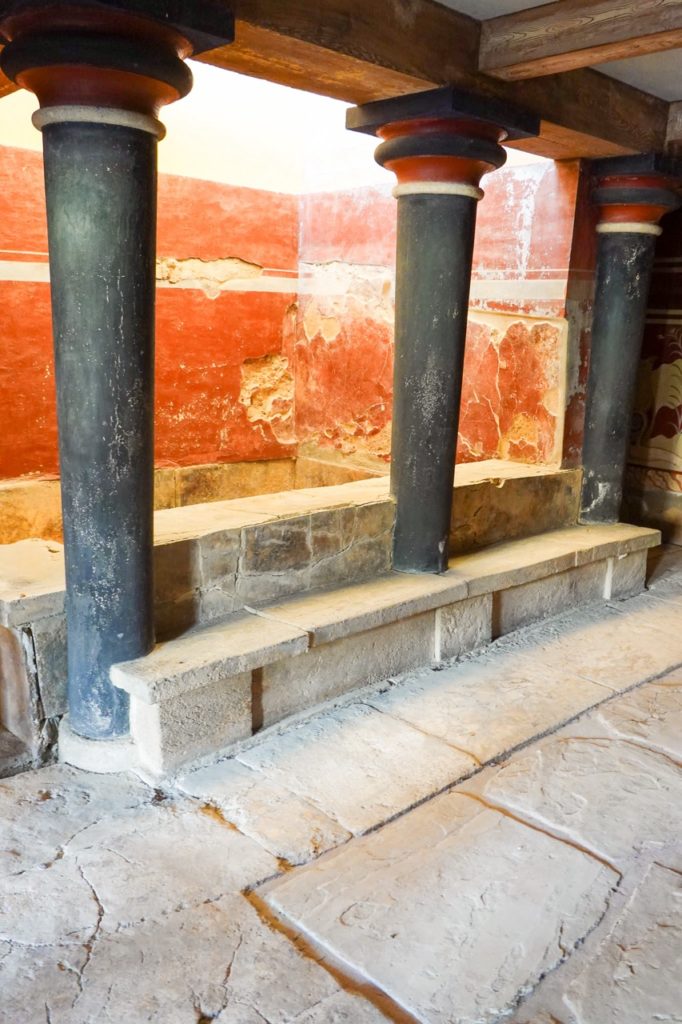
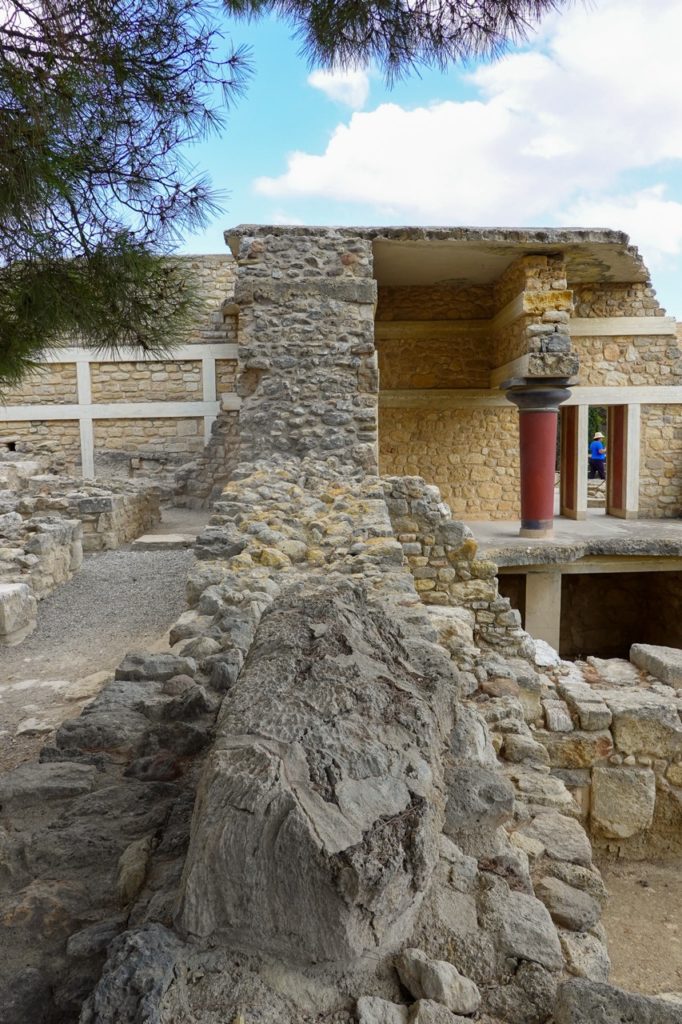
One intriguing theory of what made this culture unique is that it may have been matriarchal – organized and run by women. This might help explain the absence of violence and warriors. Imagine a wealthy and sophisticated society where war and domination of its neighbors was not a feature.
“At the dawn of civilization . . . there was Crete and Sumeria, and Crete had a peaceful trading culture, run by women and filled with art and beauty—a utopia in fact, where the men were acrobats who jumped bulls all day, and women all night, and got the women pregnant and worshipped them . . . While Sumeria on the other hand was ruled by men, who invented war and conquered everything in sight and started all the slave empires that have come since . . . what might have happened if these two civilizations had had a chance to contest the rule of the world, because a volcano blew Crete to kingdom come, and the world passed into Sumeria’s hands . . . If only that volcano had been in Sumeria,”
Kim Stanley Robinson, The Mars Trilogy
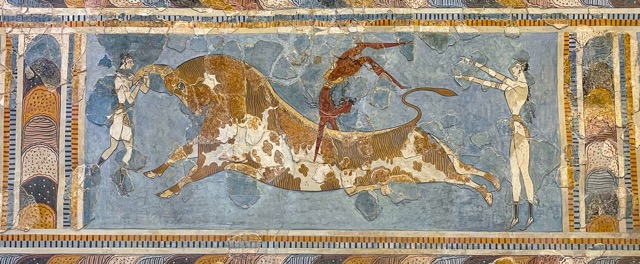
Modern Art
Yes, sometime around 1,750 years before Christ, a volcano exploded at the place we know today as Santorini forever changing history. For me, of course, it’s the art, architecture, and construction technology that fascinates. This palace is only one of at least a dozen on the island of Crete accompanied in each case by a surrounding community of homes and villas. The term “palace” is a misnomer as these projects were much more than a home of the elites. They included administration, workshops, storage, and religious spaces. It seems evident that they were key to the economic and cultural success of this society.
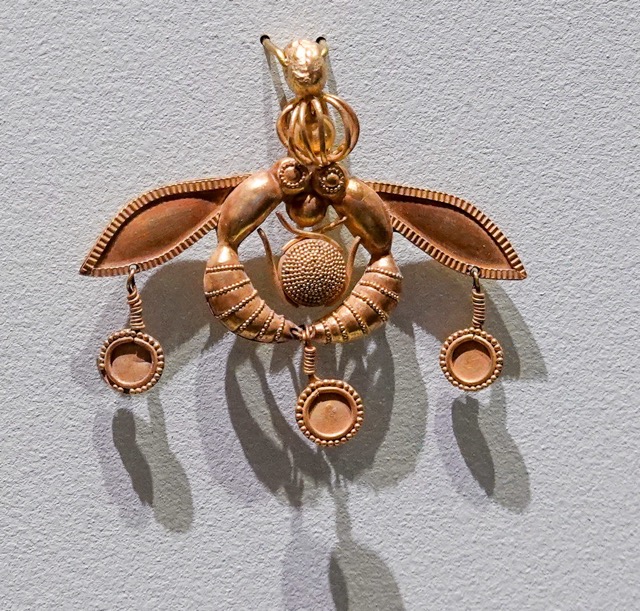
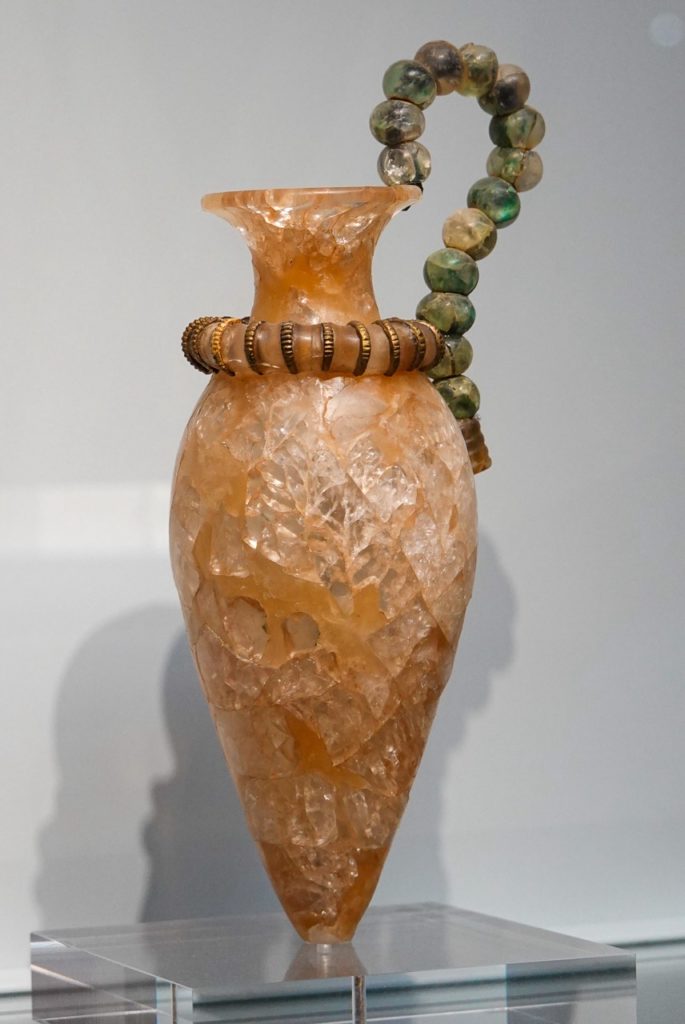
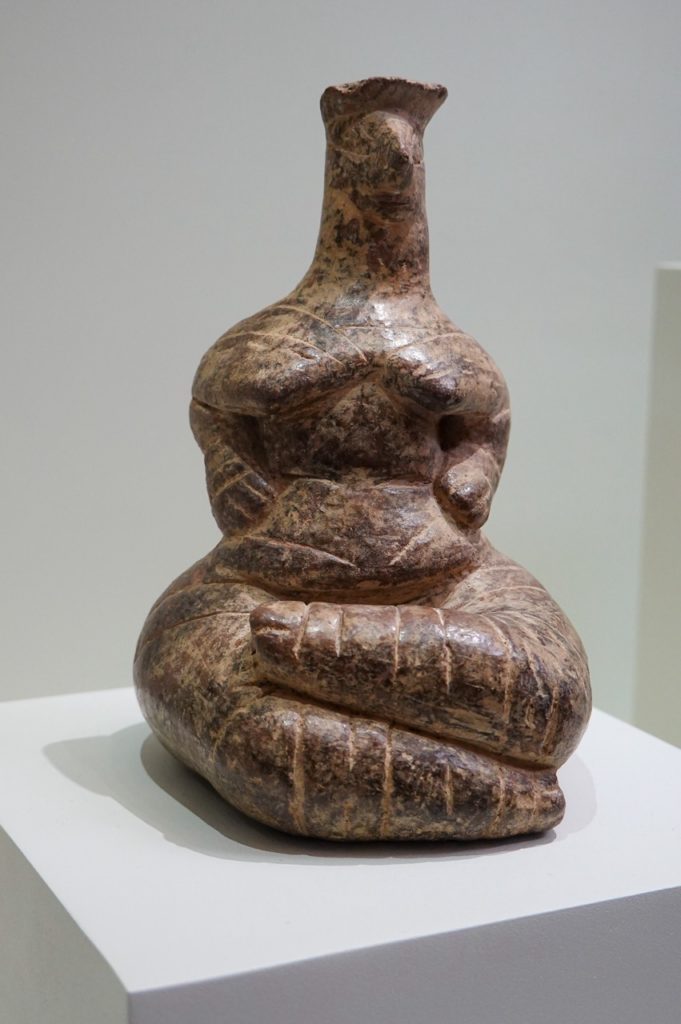
That success allowed the development of an amazing range of artistic achievements including sculpture, wall paintings, pottery, and jewelry, all of which evidence a refined and sophisticated sense of design. In fact, the art of the Minoans feels entirely contemporary with an emphasis on composition, simplicity of form, and refined execution that would be equally at home in MOMA or the Met.

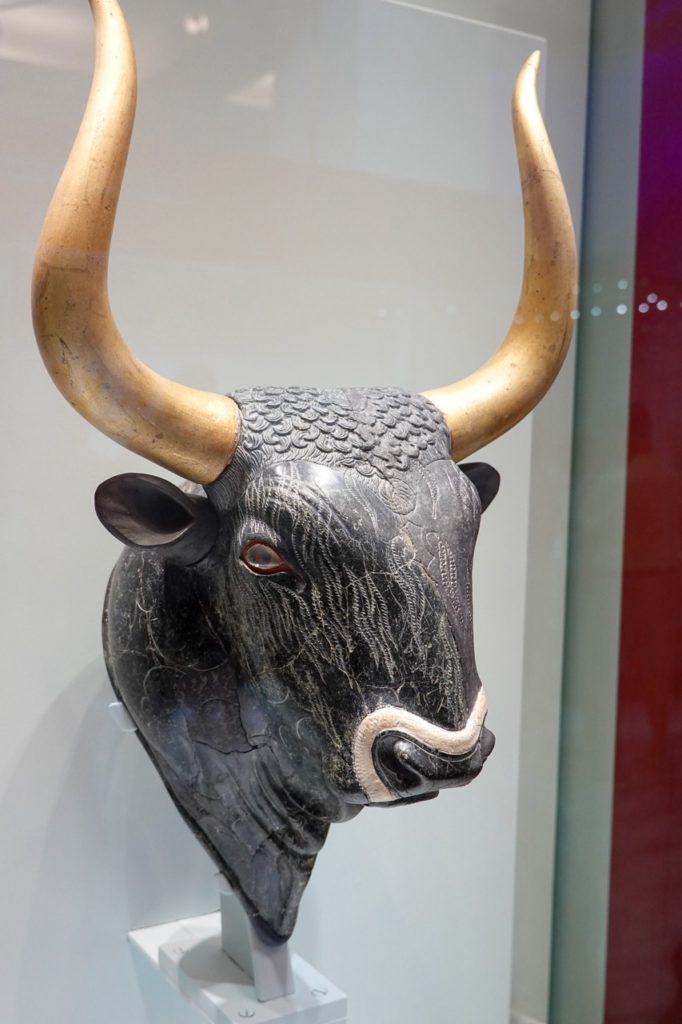
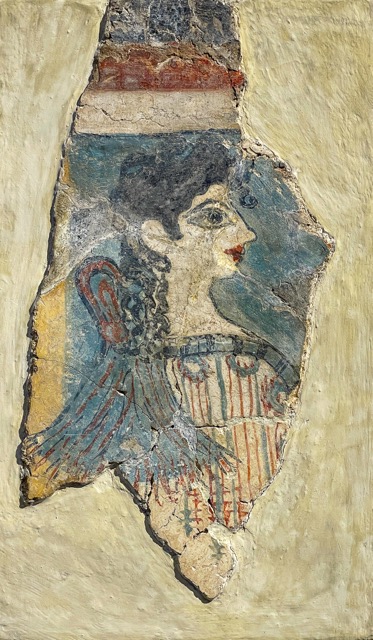
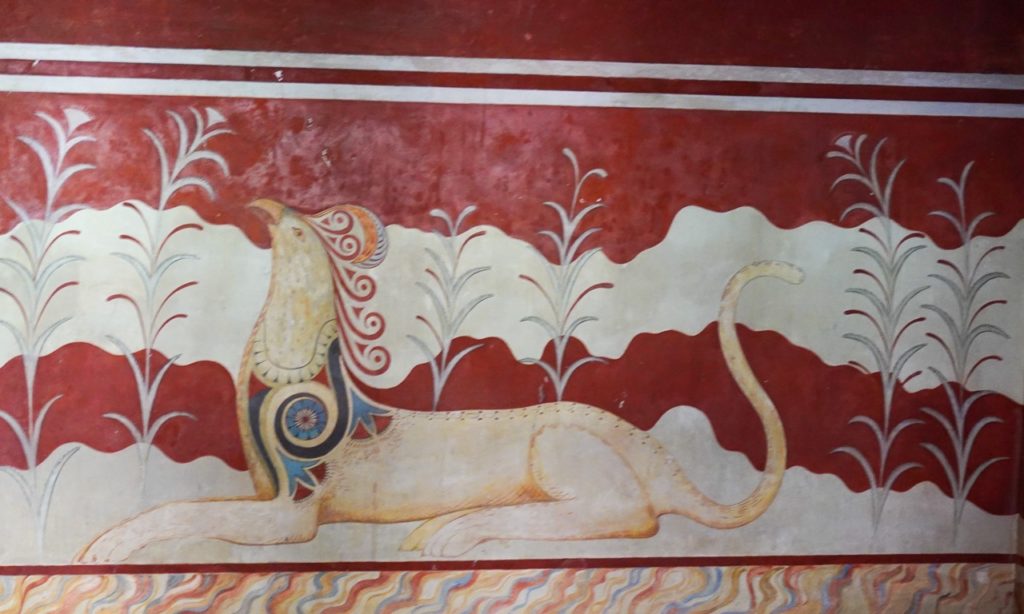
So here we have a civilization that was literally unknown to us just a few generations ago with a sophistication and capability that was also unimagined. It begs the question, of course, what else has been lost to human knowledge and understanding? How many other amazing places exist beneath the blanketing silt of history? I’m humbled.
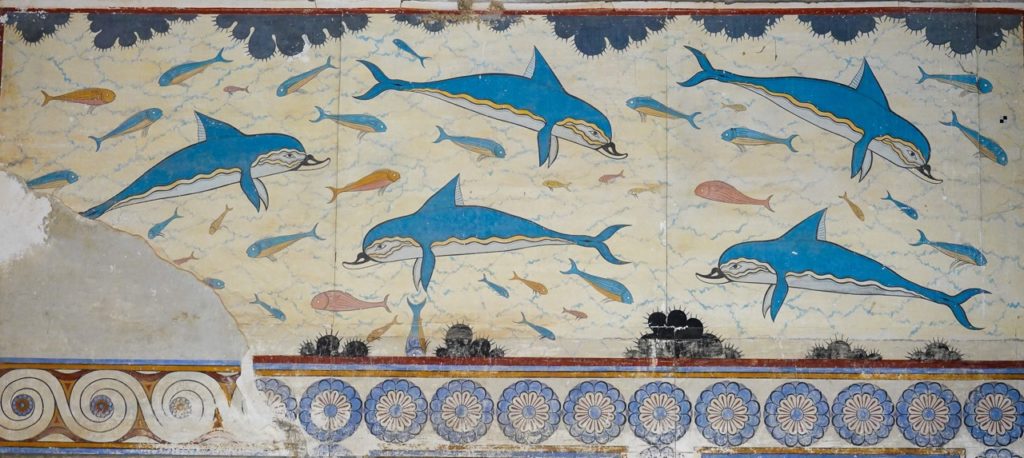
We often miss our seaside retreat on the Mendocino Coast. There are few things as magical as watching the changing ocean throughout the day and listening to the crashing waves in bed each evening and morning. It seems we’ve fallen in love with Greece. We’re already talking about an annual trip and trying to decide which islands (beaches) to explore next.
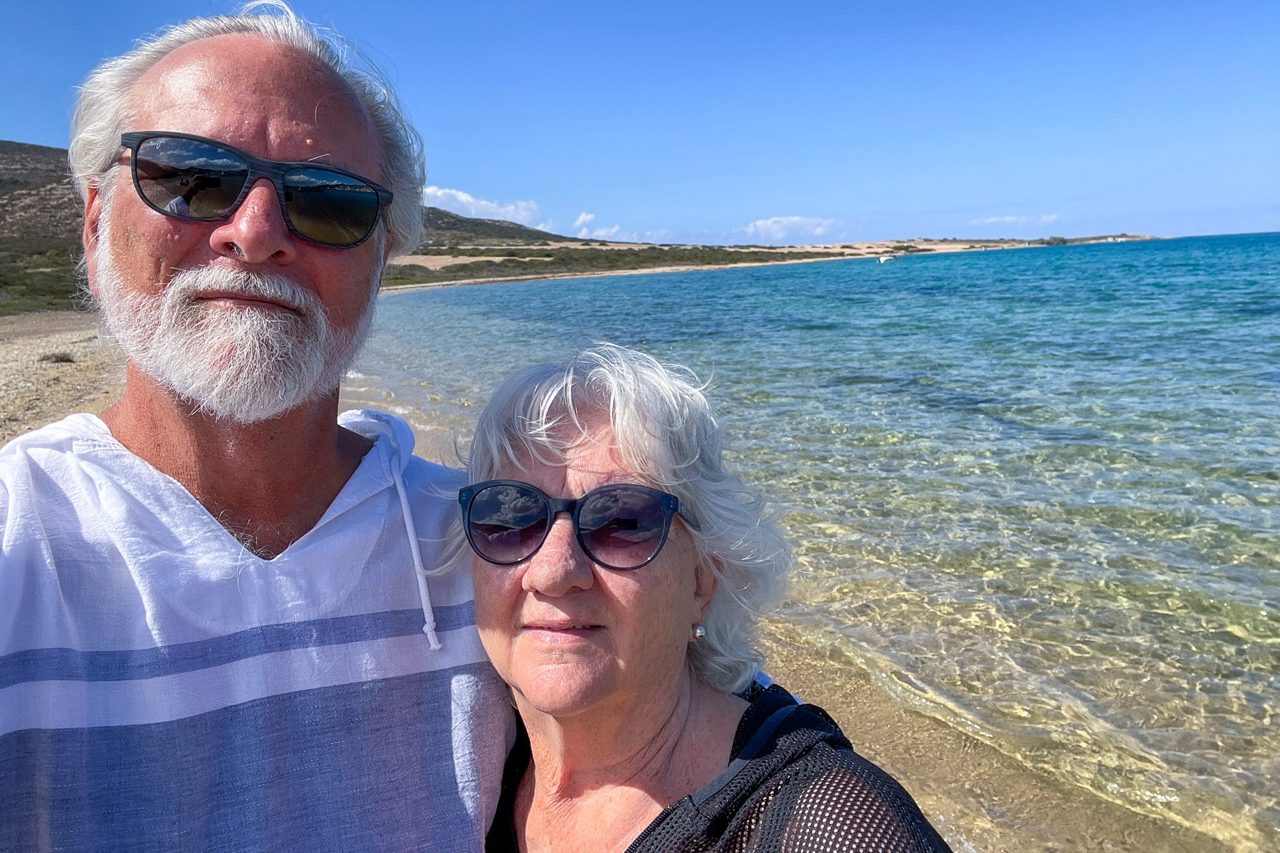
“Greece is a haven. I’ve been around the world, to beautiful places in the world, none of them tops Greece. The land, the sky, the water, it’s good for the soul; it’s a healing place. Particularly if you get into that fabulous, fabulous Greek schedule of sleeping until noon, staying up until 3 o’clock in the morning, and arguing in a taverna until 3 am. It’s just the best life one can have.”
Tom Hanks
About Us
Welcome to our little corner of the world where we invite you to embark on exciting journeys with us!
We’re Ed and Bonnie, a duo passionate about exploring the world and experiencing its wonders. Our love for travel isn’t just about discovering new places; it’s about sharing those moments with cherished family and friends like you.
Our hope is that you will feel like you’re right there with us, sharing in the excitement and wonder of each destination. Better yet, let’s plan a rendezvous somewhere wonderful! Learn more

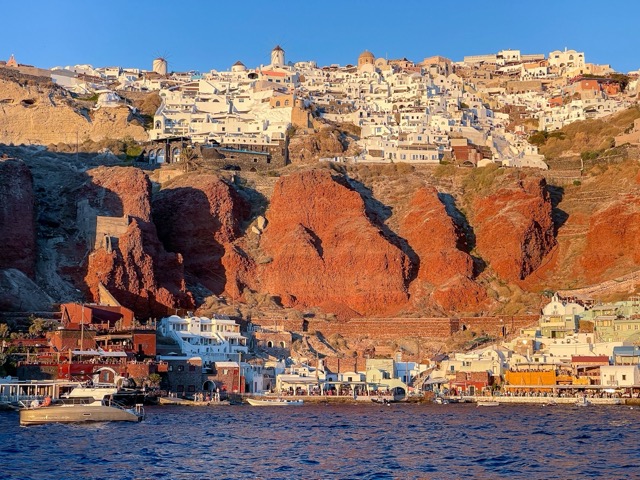
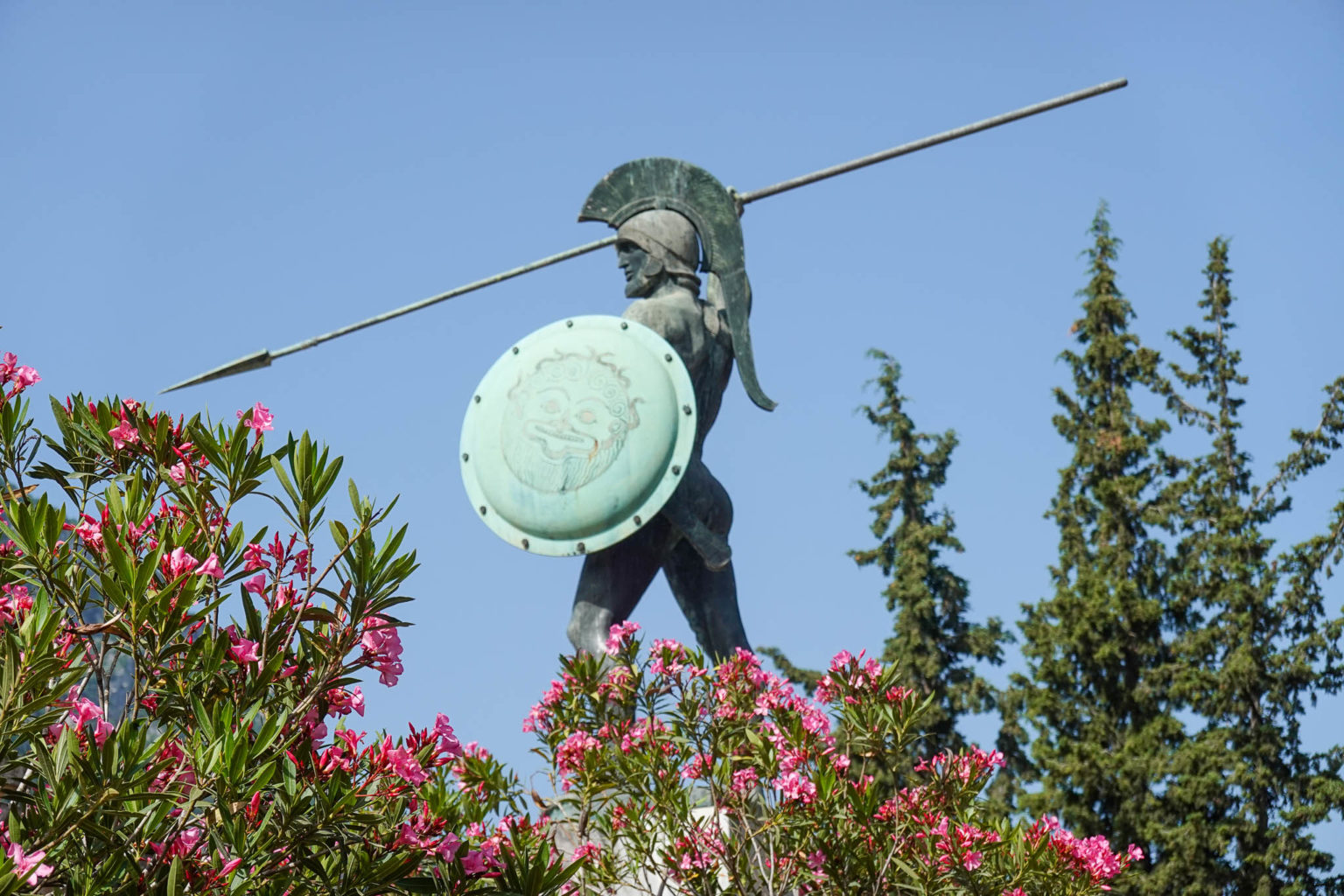
Ne Ne Ne.!!! Now you know why we Adore the Greek Islands and why one of the Highlights of my life was living in Skiathos for four months while I recovered from my accident! Your photos and text are Magnificent!!! I plan to share with Elli, Angela, and Toni and Quentin, all of whom know and love Everything you so beautifully shared. And it seems you hit the Perfect season for weather, few tourists, and the ultimate: SWIMMING in the BEST WATER in the world as far as we know! ( Hawaii is lovely, but NOT Greece.). We LOVE the fact that you plan to return annually as so many Europeans do. And isn’t Knossos a fascinating reconstruction–we Believe the Matriarchal theory! one just has to witness the Art Aesthetic to realize what an Exceptional culture the Minoans created and lived. Thank You for reminding us once again Why we continue to return to the magic of Greece! Jo and Nayan xo